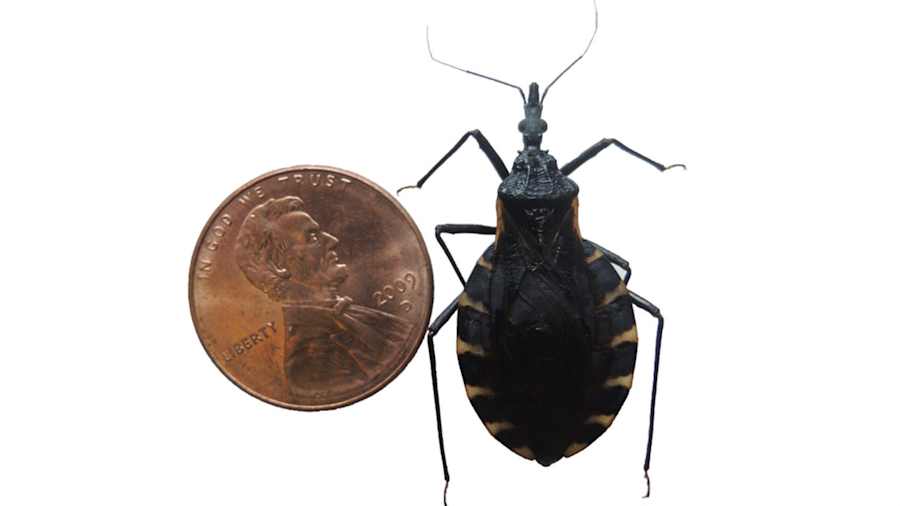SAN ANTONIO – A San Antonio man’s dog is still suffering from the side effects of Chagas disease four years after getting bitten by an insect known as the kissing bug.
The insect — whose actual name is the triatomine bug — carries a parasitic disease called Trypanosoma cruzi, or Chagas disease, which affects both humans and dogs. It’s found in several states, including Texas, and a single bite from an infected bug could lead to stroke or heart failure.
Recommended Videos
Friesenhahn, the dog’s owner who wished to be identified by his last name only, told KSAT via email that his dog Hunter was bitten by a kissing bug in 2019.
He said Hunter came very close to dying, suffered multiple heart attacks and also had several seizures.

Veterinarians at the San Antonio animal hospital where Hunter was taken were able to determine the dog had Chagas disease after blood test results.
Friesenhahn said Hunter is okay now but has to take three different medications, twice a day that cost around $60 a month.
“It was said that he may need to be put down but I just couldn’t do it. I told them to do everything they can for him,” Friesenhan said.
“It is quite serious. It causes heart failure and severe heart complications and they will live a shortened life with a weak heart and will require expensive medications,” Friesenhahn said of infected animals.
The Texas A&M AgriLife Extension website says Texas, New Mexico, and Arizona are the states with the most species and findings of kissing bugs.
Gabe Hamer, with Texas A&M AgriLife Science, previously told KSAT that kissing bugs are about an inch long when fully grown and can live for about a year.
Hamer says people living in San Antonio can see them around their homes because the bugs fly in from the Hill Country and are attracted to lights.

“Our laboratory at Texas A&M University has found that about 50% of kissing bugs are infected with the Chagas parasite,” AgriLife Extension officials said.
Experts say bites from a kissing bug aren’t painful and many people don’t realize they’ve been bitten.
“There is no ‘typical’ reaction to a kissing bug bite. Like mosquito bites, some people have almost no reaction and other people have severe reactions. It is not usually possible to tell what bit you if you are only looking at the bite. Reactions to kissing bug bites vary from unnoticeable to anaphylactic shock,” officials said.
Anyone who thinks they might have been bitten by the kissing bug is advised to contact a doctor or healthcare provider.
Pets who may be infected with Chagas disease should be taken to a veterinary clinic.
For more information about how to diagnose and treat Chagas disease, visit the Centers for Disease Control and Prevention here.



